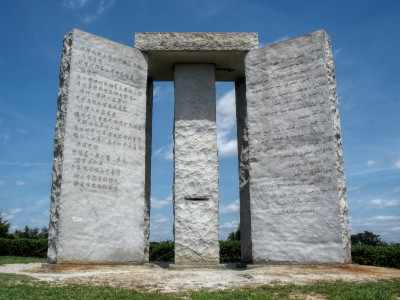Welcome to Alexandria Two
|
In the spirit of the original Library of Alexandria,
Alexandria Two is a repository of key human knowledge. The goal is to
gather all such knowledge and distribute physical copies such that it
will never be lost again. This way future generations receive: 1)
Unaltered, independently verified copies of the information; 2) In the
event of the suspension of civilization, critical information to rapidly
rebuild, as well as preserve surviving devices, not to mention lives.
Alexandria 2 fits onto a 128 gigabyte TF or MicroSDHC card with room to
spare. Certainly there is room for one (along with a device to read it)
in your time capsule.
The "Core" subset is information crucial to rebuilding following a discontinuity of civilization. The "Common" subset is information to describe who we were (and by implication, how to avoid our mistakes). The "Cultural" subset is next: Literature, History, Visual Arts, Biographies, and Music. The "Collection" is all else.
The Head Curator decides what goes into which subset. The Editor handles submissions. The Librarian classifies the information. You can participate as an Author, Contributor or Curator, register as a Researcher, or simply read and use the material as a Visitor.
An Author contributes new material to the archive. A Contributor
adds to existing topics. A Curator stores, or protects local copies of
the Archive. A Curator is allowed and encouraged to include personal
material, in a "Curator subset", in his own locally preserved copy only.
All viewpoints are welcome. No voice will be discriminated
against if it can back its viewpoint; similarly, a viewpoint is not
automatically accepted as fact, simply due to the reputation of its
proponent, nor how well it matches prevailing orthodoxy.
Certain topics are restricted to description only, including: Advertising Material, Live Religions, Current Affair Politics, and Current Affair Social Issues.
- The Objectives of Alexandria Two:-
(WIKI CONTENTS)
To be able to contribute, Login or Register (top R/H of page)
|
What is Alexandria Two
|
- What is this "Wiki"?
- Alexandria Two is a collaborative effort by researchers,
historians, librarians and artists from all around the world, to collect
and preserve important science, human discoveries, literature, art, and
history. Unlike a static website or collection of books and papyri that
is subject to destruction or loss, the information in Alexandria Two is
distributed to all points.
- How does this "Wiki" work?
- No specialized skill is required to contribute to Alexandria
Two. However, only registered members can log in with their username to
do this, so, please register - it only takes a minute and is absolutely
painless. When logged in, each section and article on Alexandria Two has
an EDIT button to enable you to add/edit anything. See the "HELP" and
"TEMPLATES" pages (L/H menu) to assist you with the very simple editing
process. Add your valuable knowledge so that others who are following in
your wake can benefit.
|
|
|
|
|
 The Georgia Guidestones Photo: WikipediaThe Georgia Guidestones, in Elberton, Georgia, intended to provide instruction to future post-apocalypse humans. It
is satisfactory to say none of its ten directives are being
followed by present society; time will tell whether they are correct or
not.
|
To Do List:
You should download and store to USB stick a local copy of the entire Wikipedia.
|
Note regarding Versioning:Copies of Wikipedia are available yearly from 2012 to present. It
is recommended to keep older versions, as they are useful to compare a
page's evolution as time goes on, for comparison purposes,
as societal viewpoints change, and recent censorship efforts
remove material from more recent versions of the encyclopedia. The Kiwix Project enables
offline storage and browsing of wikis. Editors compile
downloadable copies of Wikipedia complete with inline pictures. All
languages are supported, although each is a separate distribution. The
largest is English, in its full version with (thumbnail) pictures, is 84 gigabytes; all others are smaller. By
doing this, your mobile device, with sufficient internal storage, or
expandable storage, can hold and browse the entire Wikipedia without
Internet. Our
recommendation is to download a copy to a USB stick and store it in a metal container.
Also available are The Wikibooks libraries of literature and texts,
as well as other Wikimedia projects. You can help by preserving or
better yet, distributing copies of this core element of human knowledge.
Outside the compass of Alexandria is information to build
technological devices from scratch. Even in the present day, the
production CPUs
is limited to a few costly, complex facilities. In the event of
discontinuity, the ability to construct such devices may be lost; the
discontinuity itself may destroy these sensitive devices in the form of EMP. However, they are easy to protect and store, and a recently "obsolete" device is a prime candidate for such storage.
|
|

